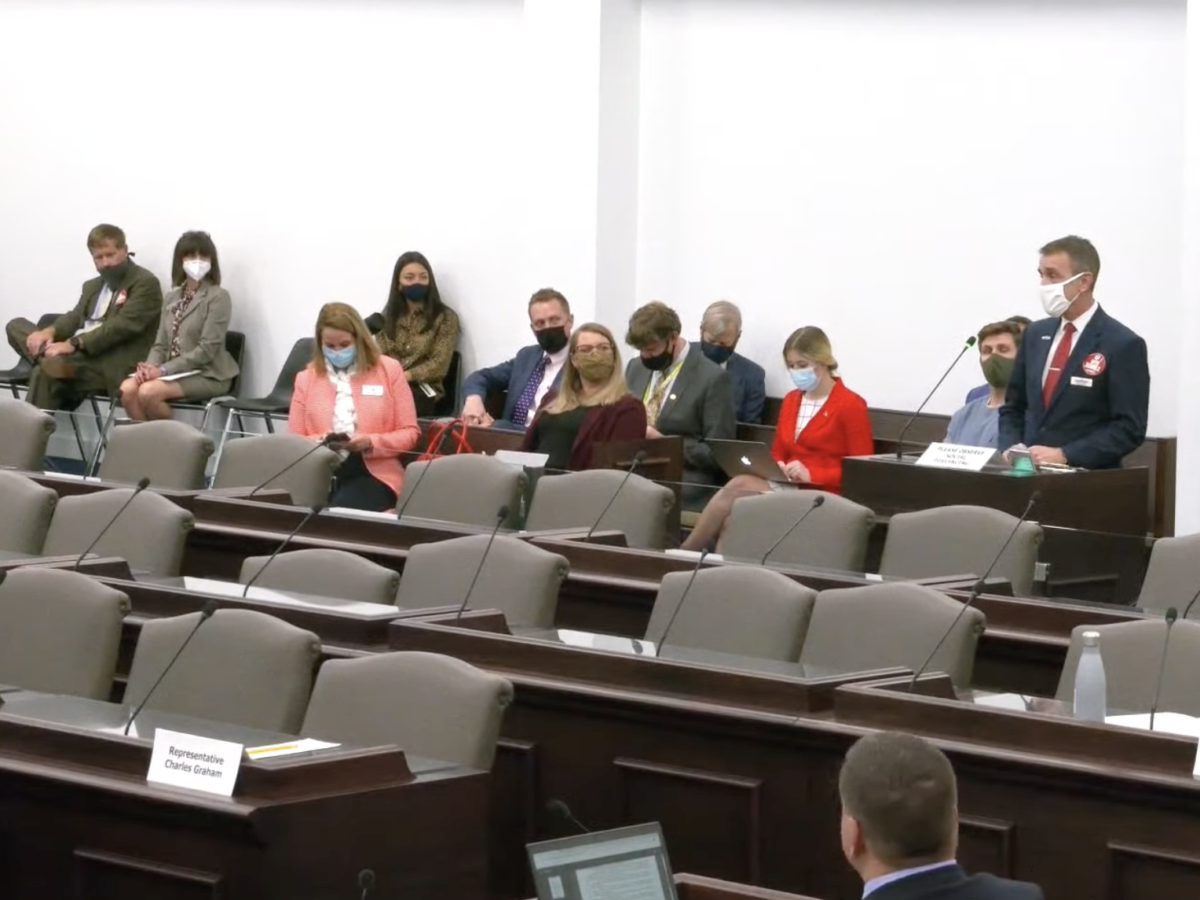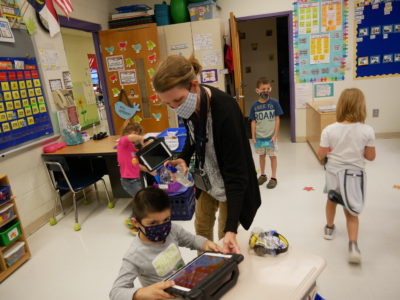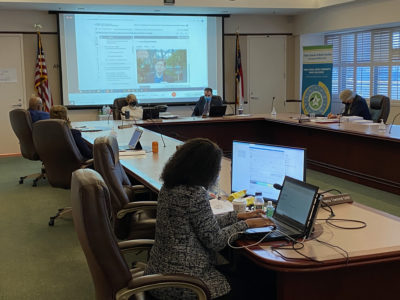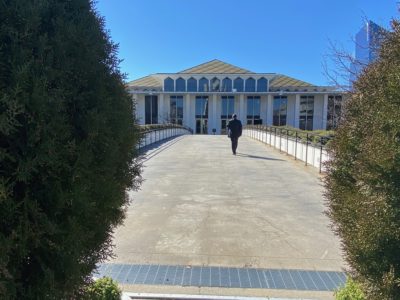
It is unclear how or if all North Carolina public school students will return to classrooms full-time this year. But members of both chambers of the legislature as well as Gov. Roy Cooper all weighed in on the issue today.
A bill that would allow schools in 14 districts the option of bringing all students back full-time with minimal social distancing (plan A) made it through a House education committee on March 9. But even if it passes the General Assembly, it may be challenged in the courts.
The bill would require the following districts to bring students back under plan A:
- Beaufort County Schools
- Brunswick County Schools
- Burke County Schools
- Carteret County Public Schools
- Cleveland County Schools
- Craven County Schools
- Granville County Schools
- Haywood County Schools
- Jones County Public Schools
- Madison County Schools
- McDowell County Schools
- Mitchell County Schools
- Onslow County Schools
- Yancey County Schools
But the bill has an interesting note attached to it. Scroll to the bottom of the summary of the bill below and you will see this written under background.
“HB 90 may give rise to Constitutional considerations. Article II, Section 24(1)(a) of the North Carolina Constitution prohibits local acts relating to health, sanitation, and the abatement of nuisances and provides that such local acts are void. During the 2020-2021 school year, guidance has been issued by the State Board of Education and Department of Health and Human Services on how schools should address the COVID-19 health pandemic, including whether full-time, hybrid, or remote instruction should be used. If HB 90 was determined by a court to be an act related to health, then it could be subject to a constitutional challenge.”
“I’ve never seen a note like this in a bill summary before,” said Rep. Graig Meyer, D-Orange, a member of the House K-12 education committee, in a text message.
When asked about the potential constitutional issues during the committee, Rep. Pat McElraft, R-Carteret, a primary sponsor of the bill, said she does not think the bill violates the requirement that local bills not touch on health issues.
“This is not a health care bill; this is an education bill,” she said.
General Assembly staff were asked to weigh in during the committee and said it is an open question as to how the courts would view the bill.
Meyer, speaking during the committee, said the constitutional question should give lawmakers pause. He said at the very least, the bill is going to end up in court.
The governor can’t veto local bills, so the legislation could represent a path forward for Republicans that doesn’t require the governor’s signature.
“Reopening classrooms in North Carolina for struggling students is the top priority we hear from constituents every single day in the General Assembly,” House Speaker Tim Moore, R-Cleveland, said in a press release about the bill last week. “We will continue to advance legislation on their behalf that lets children return to in-person learning full time as soon as possible.”
Sign up for the EdDaily to start each weekday with the top education news.
The bill originally had fewer districts and required them to bring students back under plan A, rather than just making it an option. Under the legislation, a remote option would still be available to families.
Rob Jackson, superintendent of Carteret County Public Schools, spoke at the committee, saying that there have been zero instances of COVID-19 transmission in his school system and that there is anecdotal evidence that drug use is increasing among the student population thanks to the disruption to school routines. Jackson said he wants students in grades 6-12 back five days a week.
“We can safely return our middle school and high school students to schools,” he said.
Elementary school students are already allowed back into schools full-time with minimal social distancing. The legislation goes next to a House local government committee.
Legislative Republicans have been trying to get students back in school with the option of plan A for a while, but they have faced a roadblock in the form of Cooper.
The governor also wants students back in school, but he disagrees with allowing middle and high school students back under plan A. Instead, he wants districts to follow current state Department of Health and Human Service guidance and allow grades 6-12 back only in a hybrid model (plan B), which combines in-person education with remote learning.
The General Assembly passed a bill in February that would have required all school districts to bring students back to schools under plan A for all grade levels, but the governor vetoed it.
The North Carolina Senate tried and failed to override the veto. And then Senate President Pro Tempore Phil Berger, R-Rockingham, claimed that the absence of a bill sponsor during the vote meant lawmakers could try again so long as a simple majority of Senators agreed, which they did. But the Senate has not scheduled another override vote since.
During a press conference on March 9, Berger and Sen. Deanna Ballard, R-Watauga, talked about their plans with regard to the Senate veto override. Berger said that legislators have been working with Cooper on an agreement and that they are close to a compromise. The Senate has been holding off on setting the override vote because of these negotiations. He said more details on a compromise are hopefully coming today.
“I’m cautiously optimistic that we will reach a deal very soon,” he said.
Berger said that if an agreement is, in fact, reached, the in-person learning bill vetoed by the governor would become moot.
Cooper confirmed during a COVID-19 press conference this afternoon that he is in talks with Senate leaders.
Recommended reading



